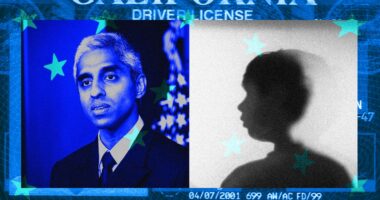A VIRGINIA man learned the hard way that law enforcement in his area was using the GPS in his phone to find his location after a friend of his died from a drug overdose in 2019.
Scott Durvin said he was aggressively questioned by a Chesterfield County Police detective after the incident.
He had no idea that police had been secretly tracking his whereabouts by ordering his provider, Verizon Wireless to ping his phone’s GPS to show his location to detectives in real-time.
“That’s kind of shocking, really,” said Durvin in a phone call to Virginia Mercury.
He said the detective would regularly call him asking for information and would “threaten to lock me up. But I didn’t have anything to do with it and he finally left me alone.”
Durvin was never named as a suspect by police in the search warrant applicator submitted to get permission to track him. Court records show that he also hasn’t been charged with a crime in Virginia since police received the warrant.
The officers said they found voicemails from Durvin on the overdose victim’s phone and thought that tracking his location could lead them to the person who supplied the heroin.
Officers also noted that Durvin had been with the man during what seemed to be a previous overdose in Richmond.
Most read in Tech
The Durvin case gives insight into a surveillance technique that has become common for law enforcement but is still unknown to many in the general public – cell phone location tracking.
In Virginia alone, officers have used the technique to conduct over 7,000 days worth of surveillance in 2020. The tracking efforts were used in cases of minor larcenies to high-profile murders, according to court records.
In 2015, a state law passed that authorizes surveillance if police obtain a search warrant from a magistrate or judge, however, the bar for judicial approval isn’t always high.
Officers can claim in an affidavit that they have probable cause that the tracking data is “relevant to a crime that is being committed or has been committed.”
There is a 30-day limit to the warrants but they can be – and often are – renewed by a judge each month.
“I don’t think people know that their cell phones can be converted to tracking devices by police with no notice,” said criminal defense lawyer Steve Benjamin.
Based in Richmond, Benjamin says he’s recently noticed a rise in cases where officers used the technique.
And the reality of modern life is everyone has their phone on them during the day and on their nightstand at night…it’s as if the police tagged them with a chip under their skin, and people have no idea how easily this is accomplished.”
In Durvin’s situation, the justification police had for tacking him resulted in a single paragraph in the search warrant application as officers believed it might help their case.
“It is in your affiant’s experience that users of narcotics will associate with other users and suppliers of narcotics in the drug trade,” wrote Detective G Hopkins. “Your affiant believes the real-time location data…will assist in the ongoing investigation into the supplier of narcotics.”
‘MY PRIVACY WAS VIOLATED’
In 2012, the US Supreme Court ruled warrantless cellphone tracking unconstitutional. Since then, there has been limited public discussion or awareness on the approval of tracking warrants.
When the law was passed in Virginia three years later, allowing warrant requirement in the state code, it went virtually unnoticed.
Then-Delegate Manoli Loupassi, a lawyer from Richmond, said he didn’t remember the legislation and was surprised to hear how often the police used it to enable cell phone tracking.
“I think the original intent was to capture and ferret out extremely serious criminality,” said Loupassi. “Not just nothing cases. And this is one of the millions of examples of how the road to hell can be paved with good intentions.”
On the other hand, police officials argued that it only makes sense to take advantage of the advancement in technology.
Dana Schrad, executive director of the Virginia Association of Chiefs of Police said departments usually don’t have the resources to conduct physical surveillance and even then, cell phone tracking is much safer.
However, Durvin, who was routinely tracked by police during the overdose investigation believes the technique to be intrusive.
“It’s kind of f**ked up,” he said. “I feel like my privacy was violated and who’s to say they ain’t still doing it?”
We pay for your stories!
Do you have a story for The US Sun team?











